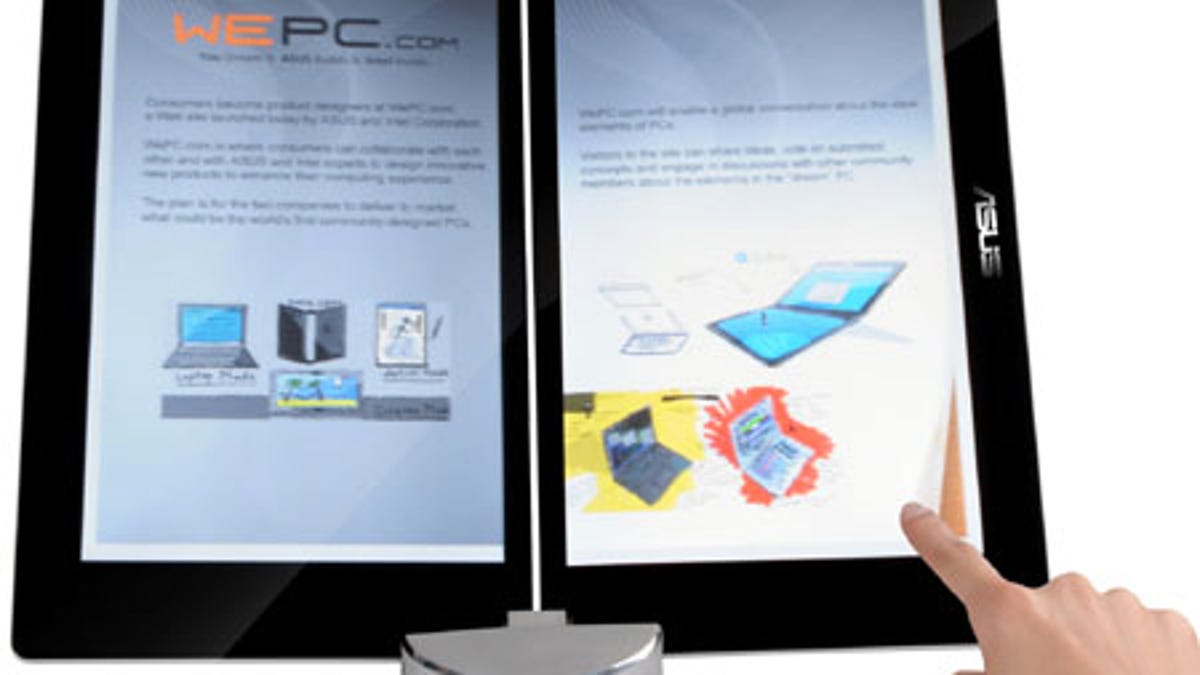Six things we'd like to see in future Netbooks
Netbooks now comprise 8 percent of the laptop market, but are we satisfied? Intel says no, and so do we: here's what we'd like to see in our Netbook of the future.

Netbooks now comprise 8 percent of the laptop market, but are we satisfied? Intel says no: its "Pine Trail" roadmap (that's the code name for its next-gen Atom processors) reveals plans for an integrated CPU/GPU, with claims of saving space as well as battery life. While the graphics power likely won't be as impressive as an Nvidia ION processor, it will change the landscape of a pretty fast-growing field. Here's what we'd like to see in the near-future of Netbooks. Sound off and tell us what you're looking for--that is, if you're looking for a Netbook at all.
1. Better video. While Atom processors can handle YouTube and some HD video streaming (kinda sorta), there are no DVD drives on these little guys. Video-playing (especially streaming) needs to be silky-smooth, even in HD. Until then, Netbooks will never be truly great portable media devices, which they ought to be. After all, Web browsing is most of what we do with computers.
2. Smaller, please! But with larger keyboards. The whole 11.6-inch and higher trend is disturbing because it's making semi-bulky Netbooks even larger. While it's nice for some applications and those who want an affordable 12-inch laptop, this whole XL Netbook trend takes away from the whole gee-whiz "look how small my notebook is!" appeal that made Netbooks an overnight hit in the first place. What we're really saying is: make better use of the size. Edge-to-edge keyboards and edge-to-edge screens should become the norm, and with better engineering, we'd like to see 10-inch Netbooks become even thinner and more compact. A Netbook could feel like a small paperback book, not a portable VCR.
3. Adopt modern operating systems. XP and Linux make Netbooks seem a bit lost in time, and honestly, a 10-incher at 1,024x600 gets crowded for programs made for larger screens. How about an optimized upgrade? Consider the iPhone OS: its great success was designing an interface specifically created for the size and ergonomics of the device's screen. In fact, hey: a modified iPhone OS wouldn't be a bad idea at all for a Netbook. While Windows 7 is aimed at going multiplatform, we also hope it considers optimizing the experience for smaller screens.
4. Get even cheaper. A large part of the Netbook appeal, to this point, has been price. At a cost of $43 for an Atom processor versus $133 for a Core 2 Duo, machines can be cheaper. But we want cheaper still. The challenge: come under 100 bucks. Already, Dell's got a $299 Netbook, and HP's got a subsidized Mini through Verizon. As "Pine Trail" makes its way through the Netbook landscape, it would be really, really great if those old Atom N270 processors could be discounted into ultra-cheapie models.
5. Explore the tablet. Is that so wrong? Opening a minikeyboard and screen can solve some mobile writing issues, but a regular smartphone can do many of the tasks we associate with "mobile computing." Make the screen larger (for instance, a tablet), and have an optional keyboard (software and/or otherwise), and perhaps we'll have a more media-friendly mobile PC than the bulkier, thicker Netbook population. Is this Apple's plan? Perhaps. But it should, possibly, be everyone's. We're already starting to see some touch screens hit the Netbook space: Dell's education-targeted Latitude 2100 offers it as an option, and the Asus has a swiveling touch-screen Netbook on the horizon. It's only the beginning.
6. Be more like phones. Phones are our future Netbooks, and it's becoming clearer every day. Android, BlackBerry, and the iPhone OS are developing new ways to get tasks done in palm-size miniapps. Interfaces are being revolutionized. Meanwhile, Netbooks are using the same flip-top keyboard-and-screen concept that's been circling around since the days of the original PowerBook. The more future-oriented design, the better (like the dual-screened Asus prototype shown above, provided it doesn't suck down batteries like Dr. Pibbs).

